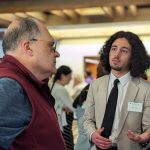Home / News /
 Summary of the Seattle Children’s Autism Blog article,’ Autism and Trajectory: Future Outcomes After an Autism Diagnosis‘ by Dr. Gary Stobbe: Understanding the outcome trajectories for autistic individuals is a key concern for families and providers. Although the literature offers limited guidance, clinical observations align with existing research, categorizing trajectories into three groups. The “optimal outcome” group, estimated at 20%, includes individuals diagnosed in childhood who become independent adults with manageable autism features. They may still identify as autistic and have co-occurring conditions like anxiety and ADHD. Another 20% of individuals require substantial lifelong support due to intellectual disabilities or expressive language impairments, with progress often being subtle but impactful. The largest group, approximately 60%, makes slow but steady progress, benefiting from ongoing community and therapeutic supports.
Summary of the Seattle Children’s Autism Blog article,’ Autism and Trajectory: Future Outcomes After an Autism Diagnosis‘ by Dr. Gary Stobbe: Understanding the outcome trajectories for autistic individuals is a key concern for families and providers. Although the literature offers limited guidance, clinical observations align with existing research, categorizing trajectories into three groups. The “optimal outcome” group, estimated at 20%, includes individuals diagnosed in childhood who become independent adults with manageable autism features. They may still identify as autistic and have co-occurring conditions like anxiety and ADHD. Another 20% of individuals require substantial lifelong support due to intellectual disabilities or expressive language impairments, with progress often being subtle but impactful. The largest group, approximately 60%, makes slow but steady progress, benefiting from ongoing community and therapeutic supports.
A critical point about these trajectories is that significant progress often extends well beyond age 18, with notable developments occurring in a person’s 20s. This highlights the importance of maintaining learning opportunities even after public school support ends at age 21. Ensuring “fuel in the system” is vital for continued neurodevelopmental and maturational progress, which benefits individuals, families, and the community.
Numerous factors influence outcome trajectories, including innate challenges like language and social difficulties and co-occurring intellectual disabilities. Other factors, such as mental and physical health conditions, can pose significant barriers but can often be positively influenced with appropriate support. A person-centered, strength-based approach focusing on quality of life can help individuals progress well into adulthood, underscoring the importance of a supportive and resourceful environment.
By Dr. Gary Stobbe, clinical professor, University of Washington School of Medicine; medical director, UW Medicine Adult Autism Clinic @ IHDD; director, Adult Transition Services, Seattle Children’s Autism Center
Read the full article on the Seattle Children’s Autism Blog.


